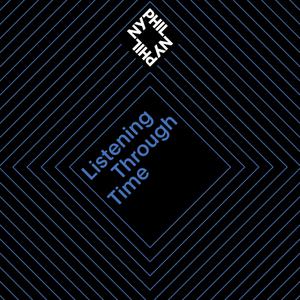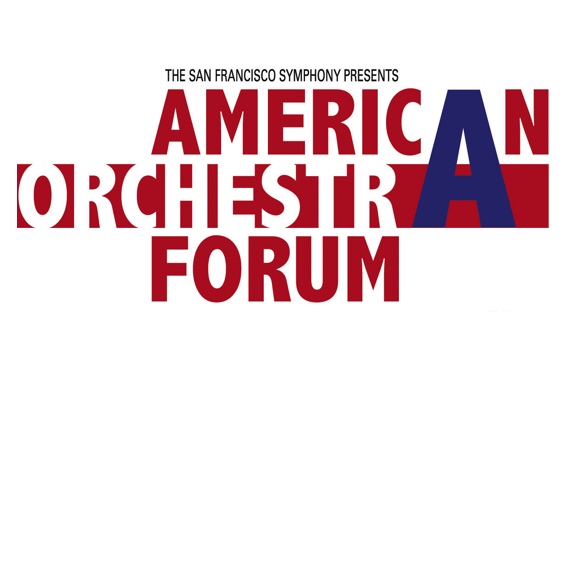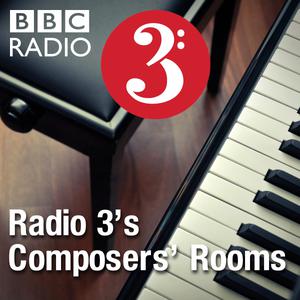
Conducting Business
Live performances and interviews from preeminent classical artists recorded in WQXR’s company café. Interviews included
- 17 minutes 52 secondsIs the 'Star-Spangled Banner' Out of Place at Orchestra Concerts?
The "Star-Spangled Banner" that kicks off opening night concerts across the U.S. is often believed to be a great patriotic tradition. But some people think it's out of place and out of mood. The Fort Worth Symphony recently drew criticism over its practice of playing the anthem before every concert. A Dallas musician sounded off on Facebook that orchestra concerts were not meant to be patriotic events, and that the anthem ruined the mood a conductor was trying to set. Many others agreed.
In this week's podcast, two experts weigh in on the anthem at the orchestra. Marc Ferris, author of Star-Spangled Banner: The Unlikely Story of America's National Anthem, says he has no problem with the piece's appearance, which is a holdover from 9/11 in many concert halls.
"Just to shoehorn it in there just for the sake of doing it could take away from the thematic program," Ferris said. "But you don't have to do it at the beginning. You could do it after intermission. You could do it at the end." He notes that the first time it was played at a baseball game was during the seventh-inning stretch at 1918 Brooklyn Dodgers game.
25 September 2015, 2:00 pm - 17 minutes 17 secondsWhy Russia Wants to Take Rachmaninoff From Westchester
An international dispute arose last month when Russia announced its intentions to reclaim Rachmaninoff's remains from a cemetery in Valhalla, NY. Russian cultural minister Vladimir Medinsky claimed that Americans have neglected the composer's grave (pictured above) while attempting to "shamelessly privatize" his name. But Rachmaninoff's descendants have balked at the idea of moving the body, pointing out that he died in the U.S. after spending decades outside of Russia in self-imposed political exile.
This week's podcast explores just how Russia has built its case for moving Rachmaninoff's body, and what larger ambitions may be driving the effort.
Simon Morrison, a professor of music and Slavic studies at Princeton University, was approached by Russian officials to find evidence that the composer wanted to be buried in his homeland. "Rachmaninoff didn't express a desire to be buried anywhere, as far as I know," Morrison tells host Naomi Lewin. All that Morrison could find was an "offhand" comment, cited in a biography, about his Swiss estate, Villa Senar. "He did write a letter to his sister-in-law, saying, 'If I must die, then this wouldn't be a bad place to be buried' – or words to that effect," noted Morrison.
Sergei Rachmaninoff at a Steinway grand piano. Circa 1936 or earlier.
(Wikimedia commons)Morrison says that a Russian delegation then traveled to the U.S. in 2014 to secure a copy of the letter from the Library of Congress. That led to a meeting between officials from Russia and the U.S. State Department, which Morrison attended as a musicological expert witness. Ultimately, the talks fell apart over Russia's military intervention in Crimea.
Welz Kauffman, president of the Serge Rachmaninoff Foundation, a nonprofit established by the composer's late grandson, Alexandre, says the matter of Rachmaninoff's remains are intertwined with Russia's efforts to purchase Senar. An attempted sale last year to an unnamed Russian oligarch fell through. The Foundation maintains that any decisions over the composer's remains or effects should be done in consultation with all of the composer's heirs (his great-great-granddaughter, Susan Sophia Volkonskaya-Wanamaker, has repeatedly dismissed the idea of reinterment).
Ultimately, Morrison believes that the case reflects a desire by Russian politicians to reclaim their cultural legacy, whether that involves scattered manuscripts or the bodies of long-dead artists. This, he says, would establish Moscow "as this faux imperial city that it never was in the first place. It's part of a broader effort to re-establish imperial culture back in Russia."
Listen to the full segment at the top of this page, take our poll below and share your comments:
10 September 2015, 4:15 pm - 9 minutes 18 secondsWhy Do Contemporary Operas Rarely Get Revivals?
Attending a new opera? Better take it all in because there's a good chance it may not be performed again. According to a 2015 study by Opera America, of the 589 operas that were premiered over the last 20 years, just 71 (or 11 percent) received subsequent revivals.
For the second of two episodes dedicated to contemporary opera, we consider why the revival percentage is so low, and what gives a new opera staying power.
Marc Scorca, president and CEO of Opera America, says that historically, few operas have ever entered the standard repertoire. "In the years of the 1780s, over a thousand operas a year premiered," he noted, but only a few, including Mozart's Marriage of Figaro and Don Giovanni, have withstood the test of time and continue to be performed. "Even though we see such a flowering of American creativity in opera, we still see a relatively limited number of new works."
The Opera America study found that Mark Adamo's Little Women has been revived the highest number of times, with 66 revivals since its premiere at Houston Grand Opera in 1998. David Gockley, who was general manager in Houston when Little Women premiered, says its popularity is due to its recognizable title, modest scale and ability to be performed by younger singers. "It is a gorgeous gem of a piece," said Gockley, who is now entering his 10th and final season as general director of San Francisco Opera.
Gockley encourages young composers to make their operas "more portable, more performable by different-sized companies."
Cori Ellison, dramaturg at the Glyndebourne Festival in England, notes that some larger companies are developing adjunct, black-box-style venues where new works can get their start. "It's good if you can commission a good old barn-burning grand opera now and again," she said. "But I think that a lot of the future of new opera in this country has to do with small venues and more modest scale."
Dead Man Walking, by American composer Jake Heggie, has received the second highest number of revivals, at 42, since its 2000 premiere with the San Francisco Opera. Gockley said he's looking forward to more new works by Heggie in the season ahead. He also maintains that the current season is nearly a golden age compared with 40 years ago, when he was starting out in Houston. "Compared with 1974, this is an immense amount of activity and to be thankful for."
Listen to the full segment at the top of this page and please share your thoughts below.
2 September 2015, 3:41 pm - 19 minutes 50 secondsContemporary Opera: Pleasing Both Connoisseurs and the Masses?
When George Benjamin's Written on Skin had its American stage premiere at the Mostly Mozart Festival on August 11, it became an unlikely summer blockbuster: a complex, contemporary opera with an abstract storyline and a dense, modernist musical language. The work got standing ovations from audiences and rave reviews from critics – but not all of them.
This summer also saw another big premiere: Cold Mountain, by American composer Jennifer Higdon, at Santa Fe Opera. That work features a more accessible language, with traditional melodies and a conventional linear storyline, though reviews were somewhat more mixed.
This week's podcast explores which approach works best in contemporary opera, and what has "sticking power." Joining host Naomi Lewin are Marc Scorca, president and CEO of Opera America, which represents North American opera companies, Cori Ellison, dramaturg at the Glyndebourne Festival in England; she also teaches at Juilliard and the American Lyric Theater; and David Gockley, who is entering his 10th and final season as general director of San Francisco Opera. From 1972-2005 he ran Houston Grand Opera, where he commissioned a lot of new work.
Gockley is unconvinced by the popularity of Written on Skin. "It's a connoisseur's piece," he said. "Its musical language is extraordinarily complicated. I mean, are you going to sit down and play [a recording of] that at dinner?" As someone whose job includes filling a 3,200-seat house every night, Gockley says that he looks for works with a certain "bourgeois" appeal. "That is what we are – a bourgeois art form," he said. And if audiences don't immediately embrace a new work, "they're not going to come back."
Ellison points out that a very different situation exists in Europe. On a list of some 60 notable modern operas recently compiled by Washington Post readers, only about 15 of them are by non-American composers. "Those 15 operas are in a much more modernist style or spectralist style," she said. European opera houses are generally smaller, benefit from government funding and can afford to take more risks stylistically. "It's a different landscape."
A scene from Jennifer Higdon's 'Cold Mountain'
(© Ken Howard for Santa Fe Opera)But if traditional American opera audiences balk at a complex, modern work, how do we account for the warm reception Written on Skin received, and the cooler one for Cold Mountain? All three guests acknowledge that while Higdon's first opera wasn't perfect, it showed considerable promise. "I left Cold Mountain really wanting to hear Jennifer Higdon's next opera," said Scorca. He adds, "The challenge for today's composers is to find their own sweet spot between being truly contemporary, and writing in the moment of 2015, and finding a way to connect with the audience."
And then there are regional tastes – and rivalries. "I think New York feels envious in one way and critical in another way of all the new operatic activity taking place outside of New York," said Gockley. "They are willing to dismiss it as being pap, and therefore, when something like the Benjamin comes along they can jump on that and think it's the bee's knees. As far as I'm concerned, it's just rehashing the modernism that has bit the dust again and again over the last 50 years."
To hear our guest's comments on operas based on novels and films, and why that can help their success, listen to the full segment at the top of this page.
31 August 2015, 4:00 am - 17 minutes 1 secondAs Newspapers Cut Music Critics, a Dark Time for the Arts or Dawn of a New Age?
It's no secret that arts coverage has been slashed by many news media outlets looking to pare costs, and there are fewer writers and less space devoted to serious classical music criticism. This year has seen critics leave national newspapers including the Houston Chronicle and the San Jose Mercury News; last December brought the departure of long time New York Times critic Allan Kozinn. That's not to mention magazines; the age when Time and Newsweek had full rosters of arts critics have long since passed.
This week's podcast explores the consequences of these changes for readers – and arts organizations – in a changing news environment. Joining host Naomi Lewin are Scott Cantrell, the outgoing music critic for the Dallas Morning News and Douglas McLennan, the founder and editor of ArtsJournal.com, which aggregates arts news stories from around the globe.
Cantrell is not optimistic about the future of music criticism. Having been the music critic in Dallas for 16 years, he just accepted a buyout offer, which leaves a grand total of zero full-time classical music critics in the state of Texas. "There's no future in arts criticism as a full-time job with benefits as we have known it," he said.
But if a newspaper critic as an influential arbiter of taste has declined, this hasn't led to less music criticism. Rather, a void is being filled by bloggers and other Internet pundits, who for the most part are unpaid. McLennan also believes that with the rise in non-traditional voices, the overall level of writing has improved. "I remember in the early years it was quite a chore to try and find 20 stories in a day that would be worth putting up," he said, referring to his site, which highlights noteworthy stories. "Let's not equate the golden age of criticism with the situation 20 years ago."
Both guests estimate that there are currently about a dozen classical music critics at U.S. newspapers, down from about 65 only two decades ago. New Yorker classical music critic Alex Ross recently compiled a list of remaining critics on his blog, The Rest in Noise. He lists 39 critics, but most of them are not solely dedicated to classical music. Even Cantrell had to do double-duty for several years, serving as a fill-in art and architecture critic.
WQXR has created a map based largely on Ross’s data about newspaper critics (radio, blogs, music magazines and other media are not included). Please have a look and tell us if there's anyone we're missing:
McLennan also believes that newspapers' current obsession with website clicks will exhaust itself, and new measurements of success will take over. In Cantrell’s experience, this may be a good thing. Even though his reviews are posted on his paper's website much earlier, many older readers will wait until they appear in ink.
McLennan cautions about feeling nostalgic for the past as a golden age of classical music journalism: It wasn't necessary better, just different. Please listen to the full segment at the top of this page and share your thoughts below.
11 August 2015, 7:11 pm - 17 minutes 48 secondsDisbelief Suspended? Met Opera Abandons 'Blackface' Makeup in 'Otello'
When Laurence Olivier played Othello in 1964, he would spend two hours a night coating his body with black grease, dying his tongue red and using drops to whiten his eyes. Such transformations have long since been banished from television and theater as racially insensitive, but some variations on this have doggedly continued in opera houses, including the Metropolitan Opera, up until this week.
The Met has said that for its season-opening new production of Verdi's Otello the lead tenor, Aleksandrs Antoneko (from Latvia and white), will not wear dark-colored makeup. The company says it is "old-fashioned" and a "tradition that needed to be changed." Many would agree that at a time in which other symbols of racism are being discarded, that kind of makeup must go too. But some critics of the decision have argued that a blonde-haired, blue-eyed Moor is problematic too. Some say the real issue involves the lack of African-American tenors currently who can sing Otello.
Lawrence Brownlee
(Dale Pickett/Courtesy of the artist)In this podcast, we get three views on this. Lawrence Brownlee, who is one of today's most in-demand tenors, and who frequently appears at the Met and other companies, says he doesn't personally have a problem with a colleague wearing blackening makeup if it serves the characterization. However, if a singer "feels they're being humiliated or they cannot accurately or appropriately portray that character with makeup on – and it takes them out of their zone when performing – then I don’t think they should be forced to do it."
But Naomi André, co-editor of the book Blackness in Opera and a professor at the University of Michigan, suggests that if blackening makeup is used, companies should include a disclaimer in a program note.
Naomi André, co-editor of 'Blackness in Opera'
(University of Michigan)"Have it discussed," she said. "Say that 'we realize that this has a very difficult history and for these reasons we've decided to use it or for these reasons we've decided not to use it.'"
She adds: "What I think is most damaging is when there's no discussion about it, and then you get a situation where the cover of an artistic brochure shows somebody in blackface and then the rest of us are thinking, 'what's going on?'" (The Met's decision came after an outcry from some subscribers who took issue with a photo in its season brochure.)
Vinson Cole, tenor
(Robert Schraeder)Vinson Cole, a tenor who has sung with many of the world's leading opera companies and orchestras over three decades, believes that the issue can be overstated. He says the use of makeup can be done subtly and without the connotations of racist minstrelsy. "When somebody's singing Otello or Aida, you don’t have to use a great deal of makeup to make it so very heavily black," he noted. "You want to give the illusion" of a black or ethnic character.
Listen to our guest's views on Madama Butterfly and the future of audience expectations at the top of this page and leave a comment below: What do you think about the Met's decision?
7 August 2015, 4:00 am - 16 minutes 30 secondsMusic Festivals Increasingly Promote Their Value to Tourism and Economy
"Art for art's sake?" Not any more. A growing number of economic impact studies conducted by arts groups suggest that music festivals have a big impact on local economies.
"If you do these studies and show them to government officials, they might be more willing to invest in the arts in their own communities," says Timothy Mangan, the classical music critic of the Orange County Register, who recently reported on the issue in Southern California. Mangan found that festivals and venues in Orange County have sought to demonstrate how they create jobs, generate tax revenue, benefit hotels and cause a ripple effect to tourist businesses.
A few years ago, arts groups in the Berkshire region of Massachusetts sought to make a similar case. They commissioned a study which found that the arts bring some 6,000 jobs to the region, and help sustain local restaurants and hotels. "The creative economy is incredibly important to this area at a time when manufacturing has moved out of the area," Julia Dixon, head of Berkshire Creative, tells Naomi Lewin. Dixon particularly cites cities like North Adams (home to MASS MoCA) and Pittsfield (which, for a decade, battled downtown vacancy with the Storefront Artist Project).
But even as cultural tourism has evolved, festivals are not a surefire economic booster to regional economies. Their programming has to be unique enough that visitors will come in the first place, and communities must work to exploit their assets while also managing traffic, parking and potential environmental effects.
Listen to the full discussion above and tell us: Do you travel to music festivals? How do you spend money outside of the arts events themselves? Please leave a comment below.
31 July 2015, 1:52 pm - 19 minutes 3 secondsAs Soloists Aim For Glamour, Is Classical Music Going the Way of Pop?
Scan through the websites and social media feeds of many orchestras, music festivals and concert halls and you'll notice a common theme: youth and sex appeal, especially when it comes to soloists. But it's more specific than that: Alluring young female violinists are everywhere – and brooding male conductors (or guitarists) with artfully-groomed stubble aren't far behind.
These musicians may well be talented and accomplished but their prominence also raises some questions: Is there room for less attractive soloists? And, as with Hollywood, do older women get shut out of opportunities?
Jessica Duchen, a classical music & dance journalist for The Independent newspaper and other publications, tells host Naomi Lewin: "I've heard some fantastic female pianists who might be overweight or they don't happen to look like supermodels, and they don't have the careers that they could. They literally do not."
Duchen recently interviewed a cellist who said that colleges and conservatories are favoring attractive performers in the admissions process. "I find this quite a disturbing thought," Duchen said.
Andrew Ousley, the head of the classical marketing and promotion company Unison Media (and formerly of Warner Classics), doesn't believe there's an epidemic of style trumping substance. While he admits that "sex appeal certainly can allow success to be amplified to a greater scale, it might be an oversimplification to say it's one of the main marketing tools that promoters use."
But Jessica Hadler, director of artist programs at Concert Artists Guild, which manages and promotes rising classical performers, says that if an orchestra is presented with two equally accomplished soloists, it will likely hire the more attractive of the two. She frequently coaches artists on matters of wardrobe and styling – and fields occasional complaints from venues about artists' choice of attire.
Whether attractive soloists' presence in concert halls is by design or happenstance – and whether it's a good or bad thing for the future of classical music – is an ongoing debate. But a question emerges: How many of them will have the sticking power of Martha Argerich and Mitsuko Uchida?
Duchen notes that "what somebody does at 50 or 60 is probably going to be a lot more interesting and mature and insightful than what somebody does at 22. It does seem to me that weeds out the sheep and the goats, if you like."
Listen to the segment above, look at the slideshow below, and tell us what you think in the comments: are standards of style changing on concert stages?
23 July 2015, 3:09 pm - 16 minutes 40 secondsCan Apple Music Find Harmony with Classical Music Fans?
"The whole concept of streaming doesn't fit with the way people listen to classical music," says Kirk McElhearn, a technology writer and senior contributor to Macworld, in this week's episode of Conducting Business.
The launch of the online streaming service Apple Music has raised hopes and reinforced some of the persistent complaints about Apple when it comes to delivering symphonies, concertos and operas to listeners' computers and mobile devices.
In test runs, McElhearn found that Apple Music repeats a problem familiar to the tech company's iTunes store: it serves up individual movements from pieces rather than grouping them together in sequence. So a listener's encounter with Beethoven's Fifth Symphony might only involve the third movement, not the whole work in sequence.
Apple is touting its streaming service, which launched on June 30 in 100 countries, for not only its depth – with more than 30 million songs – but its hand-picked recommendations. Some of its "curated" playlists are chosen by the company's editors – à la the old record store clerk. There is also a section called "for you," based on music you've previously purchased or rated. McElhearn complains that when he first opened this section he was given a playlist called "Classical Music for Elevators."
Classical Music...for Elevators (Screenshot/mcelhearn.com)
Craig Havighurst, a writer and broadcaster from Nashville who co-hosts the weekly show Music City Roots, also tested Apple Music and tells us that the service lacks sufficient contextual information about recordings, such as liner notes (a flaw he admits is partly attributable to record companies). Searching for artists also didn't go easily. "Fans of classical music want to be able to see who a soloist is or who a conductor is and the 'artist' catchall doesn't explain that," he said.
Apple did not respond to requests for comment for this segment. But while streaming companies – including Spotify, Pandora and Google Play – inevitably make music of all kinds more accessible, Havighurst argues that "art" genres may always be neglected: "If classical and jazz listeners are 4 to 5 percent of the [total] market, they are the ones who get underserved."
Listen to the full segment above and tell us below: Have you tried Apple Music? What did you like or didn't like about it?
16 July 2015, 2:35 pm - 16 minutes 41 secondsAfter Ronald Wilford, Classical Music's Super-Agent, Who Calls the Shots?
Ronald A. Wilford, once classical music's biggest power broker, died on June 13 at age 87.
Wilford was an artist manager of the old school, wielding major control over the business but keeping a very low profile. In 50 years at Columbia Artists Management, Inc. (CAMI), he was the power behind the thrones occupied by James Levine, Riccardo Muti, Seiji Ozawa and Herbert von Karajan, among other conductors. With his legendary client roster, Wilford was able to call the shots and secure bookings for lesser-known artists in exchange for one of his A-listers.
But the classical music business has changed dramatically since Ronald Wilford's glory days – and so has the role of the artist manager.
This week's episode looks at Wilford's legacy and the future of artist management with Bill Palant, the founder and managing director of Étude Arts, a new artist management agency; until last month he was a vice president at IMG Artists. Also joining us is David Middleton, a managing partner at Alliance Artist Management, and a onetime employee of Ronald Wilford's CAMI.
"Mr. Wilford had the benefit of being in a position to shape and drive programming globally," said Palant, by essentially forcing orchestras to take the soloists his conductors wanted. But that style of deal-making has become far less routine. "It's no longer a quid pro quo where you say to the orchestra 'my conductor is coming and he or she wants this quartet for a Beethoven Ninth Symphony.'"
Middleton agrees, noting, "In my days at CAMI, there was a sense of heavy-handedness, and that control wasn't felt so well in the industry, particularly on the presenting side."
The management business may still exercise some hard-nosed tactics, but Palant and Middleton say that stealing other firms’ clients is a no-no. "In my experience, there is a respect for each other where we try not to poach artists if at all possible, particularly if it's from a manager that we respect," said Palant. But if a major artist approaches another manager, wanting to jump ship, "then it's fair play.”
Listen to our guests' comments on the future of artist management at the top of this page and share your reactions below.
18 June 2015, 6:32 pm - 20 minutes 3 secondsHow Music School Grads Can Beat a Tough Job Market
As this year's college graduates frame their diplomas, the job market is the strongest it has been in nearly a decade. The economy is improving and salaries are up in many fields. But how these developments impact classically trained musicians is a more complicated picture. In this week's episode, we explore career prospects for the class of 2015.
First, we look at their earnings potential. A new study from Georgetown University's Center on Education and the Workforce used U.S. census data to analyze wages for workers from 137 college majors. It found that the popularity of majors doesn't always match earnings potential: Music ranks 36th in popularity among bachelor's degrees but 113th in terms of earnings (graduate music degrees rank 31st in popularity, and 121st in earnings). The median national income for a musician with a bachelor's is $49,000 (top-paying fields are in science and business).
Anthony P. Carnevale, the lead author of the study, says that while music falls low in the pay scale, it is possible to make a solid middle-class living in the arts. "If you make 40 to 50 grand a year and you're married to someone who makes the same, that's 100, and if you get benefits that adds 30 percent of the value to your job," he said. "You can raise a family on that."
Carnevale added that students should follow their passion but be mindful: "What you take in college is going to have a lot to do with what you do after breakfast for the 45 or 50 years after you graduate and go to work."
Next, a reality check from two newly-minted graduates. Weixiong Wang, a clarinetist who just received a master's degree from the Juilliard School, says that while he has a budding performance career that includes a post in the Albany Symphony Orchestra, he isn't putting his eggs in one basket: he is also starting a recording studio in Brooklyn. "From second year of undergrad," he says, "I started to realize that even though I have so much passion for music, it's very important to make a living while you're in love with music. That's the problem a lot of us are facing after school."
Maria Natale, a soprano and recipient of a professional studies certificate from the Manhattan School of Music, has already performed with the Sarasota Opera and other companies. Now, she’s facing an endless round of auditions. "I never once saw opera from the business side and now that is the most difficult part," she admits. "Everybody has their definition of a dream job....I want it all."
We also ask whether conservatories are adequately preparing students for careers. Listen to the musicians' responses in the segment above and tell us in the comments below: What advice do you have for new college graduates?
12 June 2015, 4:00 am - More Episodes? Get the App
Your feedback is valuable to us. Should you encounter any bugs, glitches, lack of functionality or other problems, please email us on [email protected] or join Moon.FM Telegram Group where you can talk directly to the dev team who are happy to answer any queries.
 Listening Through Time
Listening Through Time
 Composers Datebook
Composers Datebook
 WFMT: Critical Thinking and Critic's Choice
WFMT: Critical Thinking and Critic's Choice
 CSO Audio Program Notes
CSO Audio Program Notes
 American Orchestra Forum - San Francisco Symphony
American Orchestra Forum - San Francisco Symphony
 Radio 3’s Composers’ Rooms
Radio 3’s Composers’ Rooms